
Jeremy David Hounsell Dammers GCOT is a British musician who was a founder, keyboard player and primary songwriter of the Coventry-based ska band the Specials and later the Spatial AKA Orchestra. Through his foundation of the record label Two Tone, his work blending political lyrics and punk with Jamaican music, and his incorporation of 1960s retro clothing, Dammers is a pivotal figure of the ska revival. He has also been acknowledged in his work for racial unity.
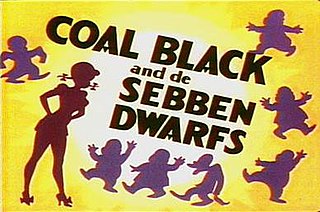
Coal Black and de Sebben Dwarfs is a 1943 Merrie Melodies animated cartoon directed by Bob Clampett. The short was released on January 16, 1943.
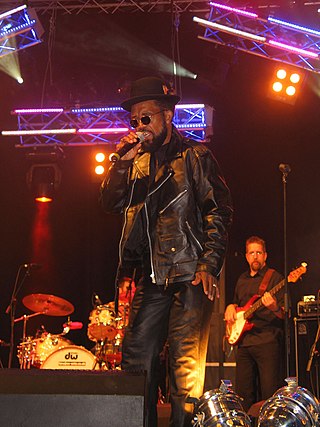
Cecil Bustamente Campbell, known professionally as Prince Buster, was a Jamaican singer-songwriter and producer. The records he released in the 1960s influenced and shaped the course of Jamaican contemporary music and created a legacy of work that would be drawn upon later by reggae and ska artists.
Errol Thompson, better known as "ET", was a Jamaican record producer, audio engineer, and one of the first studio engineers to be involved in dub music.
Prince Far I was a Jamaican reggae deejay and producer, and a Rastafarian. He was known for his gruff voice and critical assessment of the Jamaican government. His track "Heavy Manners" used lyrics about government measures initiated at the time against violent crime.
Errol Dunkley, sometimes spelled Erroll Dunkley, is a Jamaican reggae musician, born in Kingston, Jamaica in 1951.

Dennis Emmanuel Brown CD was a Jamaican reggae singer. During his prolific career, which began in the late 1960s when he was aged eleven, he recorded more than 75 albums and was one of the major stars of lovers rock, a subgenre of reggae. Bob Marley cited Brown as his favourite singer, dubbing him "The Crown Prince of Reggae", and Brown would prove influential on future generations of reggae singers.

Lloyd Woodrowe James, better known as Prince Jammy or King Jammy, is a Jamaican dub mixer and record producer. He began his musical career as a dub master at King Tubby's recording studio. His dubs are known for their clear sound and use of effects.

Edmond Montague Grant is a Guyanese-British singer, songwriter and multi-instrumentalist, known for his genre-blending sound and socially conscious lyrics; his music has blended elements of pop, British rock, soul, funk, reggae, electronic music, African polyrhythms, and Latin music genres such as samba, among many others. In addition to this, he also helped to pioneer the genre of "Ringbang". He was a founding member of the Equals, one of the United Kingdom's first racially mixed pop groups who are best remembered for their million-selling UK chart-topper, the Grant-penned "Baby, Come Back".
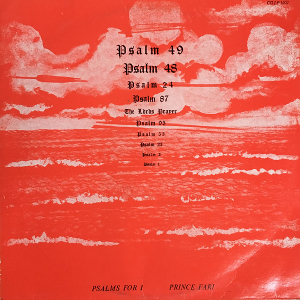
Psalms for I is the debut album by reggae chanter Prince Far I, recorded in 1975 and released on the Carib Gems label in 1976. The album features nine tracks based on psalms and "The Lord's Prayer", over rhythms largely played by The Aggrovators and produced by Bunny Lee, notable exceptions being the "Psalm 24" rhythm, which was produced by Alton Ellis. "Psalm 53" used the rhythm from the Lee "Scratch" Perry-produced "Mighty Cloud of Joy". It was described by Mark Perry in a review in his Sniffin' Glue magazine as "a plastic Bible that goes round and round".
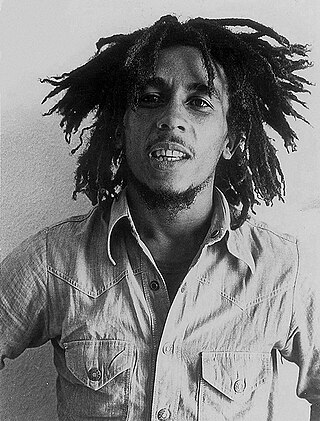
Robert Nesta Marley was a Jamaican reggae singer, guitarist, and songwriter. Considered one of the pioneers of the genre, he fused elements of reggae, ska and rocksteady and was renowned for his distinctive vocal and songwriting style. Marley increased the visibility of Jamaican music worldwide and made him a global figure in popular culture. He became known as a Rastafarian icon, and he infused his music with a sense of spirituality. Marley is also considered a global symbol of Jamaican music and culture and identity and was controversial in his outspoken support for democratic social reforms. Marley also supported the legalisation of cannabis and advocated for Pan-Africanism. In 1976, Marley survived an attempted assassination in his home, which was believed to be politically motivated.

"Clash City Rockers" is a song by English rock band the Clash. It was first released in February 1978 as a single with the B-side "Jail Guitar Doors", the latter a re-worked version of a song from Joe Strummer's pub rock days. "Clash City Rockers" was the second of three non-album singles released between the group's eponymous first album in 1977 and their second album, Give 'Em Enough Rope (1978). It was later included as the opening track of the belated US version of the band's debut album.
Carlton "Santa" Davis is a musician from Jamaica, primarily known for his drumming with bands such as Bob Marley & The Wailers, The Aggrovators, Soul Syndicate and Roots Radics. He has worked with reggae artists such as Jimmy Cliff, Black Uhuru, Burning Spear, Big Youth, The Wailers, Peter Tosh, Andrew Tosh, Wailing Souls, Ini Kamoze, Big Mountain, Michael Rose, and Ziggy Marley.
J.C. Lodge, is a British-Jamaican reggae singer, fine artist and teacher. Her breakthrough hit "Someone Loves You, Honey" became the best-selling single of 1982 in the Netherlands. Lodge is also an accomplished painter, having exhibited in Kingston art galleries, and has acted in several theatre productions.
Roy Anthony Johnson, better known simply as Anthony Johnson, is a Jamaican reggae musician who was a member of the group Mystic I and is known for the 1980s hit song "Gunshot".
Ophlin Russell, better known as Sister Nancy, is a Jamaican dancehall DJ and singer. She is known as the first female dancehall DJ and was described as being a "dominating female voice for over two decades" on the dancehall scene.
Front Line was a reggae subsidiary of Virgin Records established in 1978. Over forty albums were issued on the label before it folded in 1979.
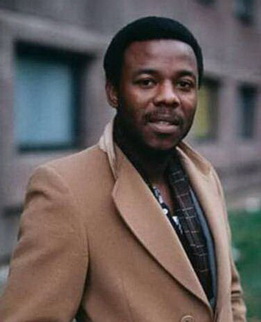
Lindel Beresford English, better known as Junior English, was a Jamaican reggae singer who began his career in the early 1960s before relocating to England.
Felix Headley Bennett OD, also known as Deadly Headley, was a prolific Jamaican saxophonist who performed on hundreds, possibly thousands, of recordings since the 1950s.
Beris Simpson, better known as Prince Hammer, is a Jamaican reggae deejay, singer, and record producer.










